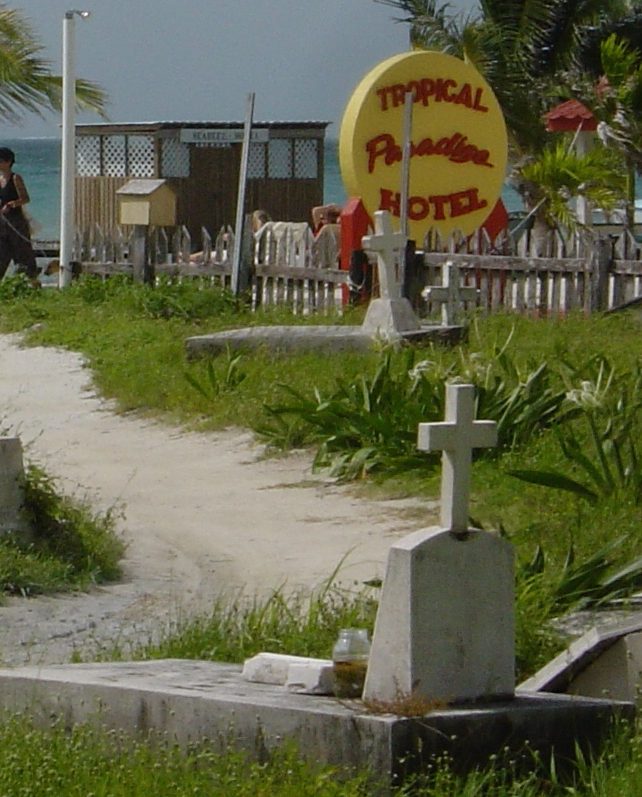
Honor and enjoy your Creator while you’re still young,Before the years take their toll and your vigor wanes,Before your vision dims and the world blurs And the winter years keep you close to the fire. In old age, your body no longer serves you so well.Muscles slacken, grip weakens, joints stiffen.The shades are pulled down on the world.You can’t come and go at will. Things grind to a halt.The hum of the household fades away.You are wakened now by bird-song.Hikes to the mountains are a thing of the past.Even a stroll down the road has its terrors.Your hair turns apple-blossom white,Adorning a fragile and impotent matchstick body.Yes, you’re well on your way to eternal rest,While your friends make plans for your funeral. Life, lovely while it lasts, is soon over.Life as we know it, precious and beautiful, ends.The body is put back in the same ground it came from.The spirit returns to God, who first breathed it.
Ecclesiastes 12 -MSG
In the process of grappling with death and dying I have come to recognize the importance of dying well. To that end, It is my goal to develop a plan to die well. This post is intended to establish a framework for developing that plan — a work in progress.
Thinking about planning to die well, it occurred to me it is not new idea for me. Many years ago, working at Ford Motor Company, although I did not recognize it as such, I devised a plan to die well. Working in a highly stressful production environment, dying well was an opportunity for pay back. Let me explain. The demand of making production quotas was crushing, nothing else took precedent. Interrupting production was an unforgivable sin. I wrote an extensive post on making production in 2020. You can read it HERE .
Management’s tyrannical demands created great stress and anxiety, resulting in deep resentment, even hatred. Unable to express anger and desire for revenge, I developed a plan that would not only achieve revenge, it would make me a memorable figure in the annals of Ford Kentucky Truck Plant.
This was my plan to die well:
At a strategic time, perhaps when corporate executives were visiting and the plant manager was lauding the plant’s production achievements; I would appear at the end of the vehicle assembly line, angry and enraged, screaming about unfairness of production quotas and tyrannical leadership — promptly suffer a fatal heart attack; thus interrupting production until my body could be removed. (That would be particularly noteworthy, as the lore of Ford Motor Company was the only time production was halted was at the death of Henry Ford, and then only for two minutes.)
Obviously, there are problems with that plan on every level. Recalling it provides insight into the person I was at that time and how far my journey has taken me from that place. It is also helpful in understanding what a framework for dying well should look like. Interestingly, my plan demonstrated all the temptations expected by the dying as identified in ars morendi. Those temptations are disbelief , despair , impatience , pride , and avarice.1Dugdale, L.S.. The Lost Art of Dying (p. 36).
People who want to die well must be willing to confront their finitude. We do not have to accept death, invite it, or wish for it. But we must be prepared to say, “Yes, I am human and therefore mortal. One day I will die.” We cannot both cling to the indefinite extension of life and effectively prepare for death.2The Lost Art of Dying
Developing a framework for dying well starts with recognizing the feelings/temptations we face as death approaches. Ironically, those same feelings/temptations appear when we are confronted with our finitude. Consensus about dying well is that living well is prerequisite to dying well. “The art of dying well starts with the art of living well.”3Dugdale, L.S.. The Lost Art of Dying (p. 23) —living well is essentially over coming slavery to death.4Hebrews2:15
There are two distinct dimensions in a plan to die well framework.
First, there is the spiritual dimension— living life well.
If the ars moriendi teaches us anything, it’s that the work of living well is what enables dying well. The tasks of living well include living each day in the context of community with a view to finitude.5Dugdale, L.S.. The Lost Art of Dying (pp. 180-181).
No matter the number of days we have left, dying well entails living each day aware of our finitude, in community that shares that reality; however, the spiritual dimension of dying well is more than awareness of our finitude, which will be fleshed out in succeeding posts
Second, there is the “nuts and bolts” of dying well; planning for end of life care. To simplify, I am calling end of life care “End Times” I suspect most think of hospice/ palliative care when end of life care is mentioned. Though hospice/palliative care are important, end of life care is much more. Consider this reality:
…a Rand study found that “Americans will usually spend two or more of their final years disabled enough to need someone else to help with routine activities of daily living because of chronic illness. Long before we are visiting loved ones on their deathbed, we may be helping them cook, clean and ones on their deathbed . While the period may average three Years, many people particularly women-will spend more than a older parents and in-laws. In the coming years, “family care giving-[for so long the backbone of long-term care-will be heavily burdened,” the Rand study predicted. Today’s family structures–smaller, often spread across the country and more independent-make it even more difficult to care for the elderly and dying. “Longer durations of illness and greater numbers of women working outside the home also place greater burdens on the pool of potential caregivers.
In a recent fifteen-year span, deaths from chronic respiratory disease increased 77 percent. Fatalities from Alzheimer’s disease have doubled since 1980…. People now succumb to congestive heart failure, lung disease, diabetes that leads to kidney failure, ALS (or Lou Gehrig’s disease) that leads to kidney failure, ALS (or Lou Gehrig’s disease) Parkinson’s, [and] osteoporosis .
Chronic illnesses mean that dying takes a longer period of Chronic illnesses mean that uyg takes a long these challenges, the trend toward gradual dying offers a unique opportunity. “For the first time in human history,” Kiernan writes, “we can anticipate our mortality. 6The Art of Dying – Rob Moll
Rob Moll says that reality is a unique opportunity ..as Christians, we try to spend our entire lives living in view of eternity, not just our final years. But even with the benefit of a lifetime’s reflection on our destiny to worship God in his presence, the prospect of imminent death will surely focus our thoughts in new ways, The experience of dying will change us. A slow death also allows modern Christians the opportunity to relearn what it means to die faithfully
Challenges and complexities of “End Times” will be examined in future posts.
STILL ON THE JOURNEY
- 1Dugdale, L.S.. The Lost Art of Dying (p. 36).
- 2The Lost Art of Dying
- 3Dugdale, L.S.. The Lost Art of Dying (p. 23)
- 4Hebrews2:15
- 5Dugdale, L.S.. The Lost Art of Dying (pp. 180-181).
- 6The Art of Dying – Rob Moll

